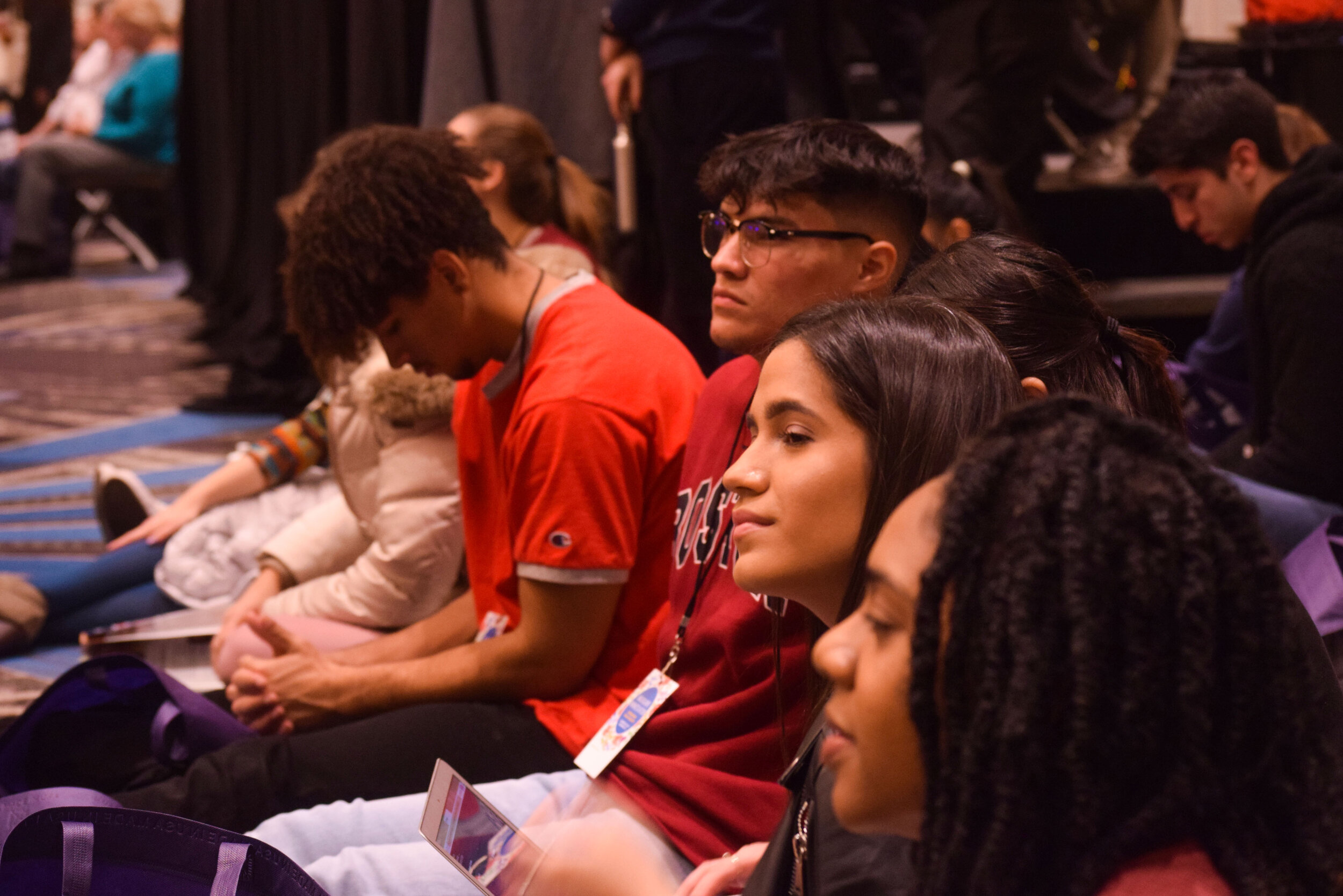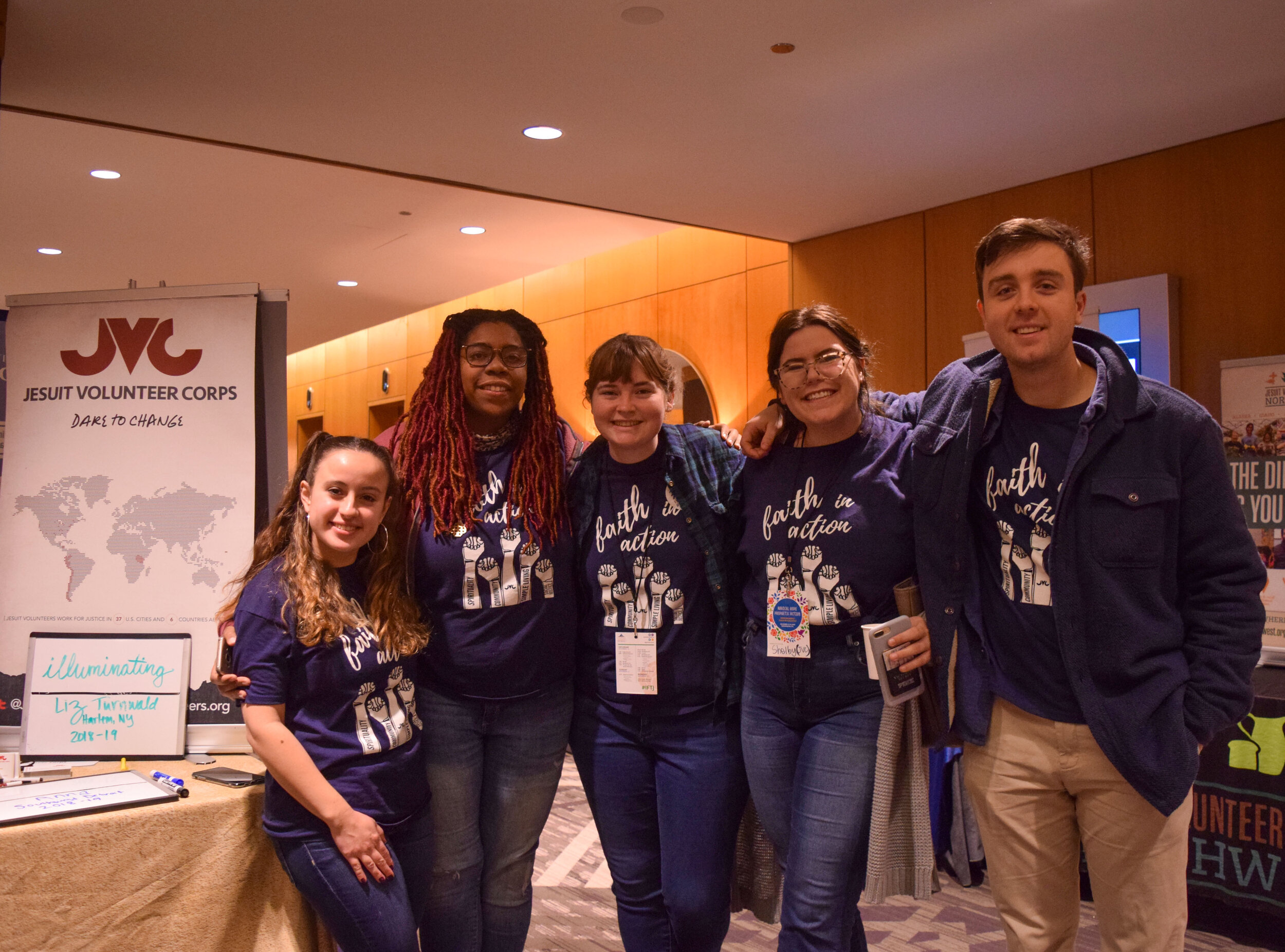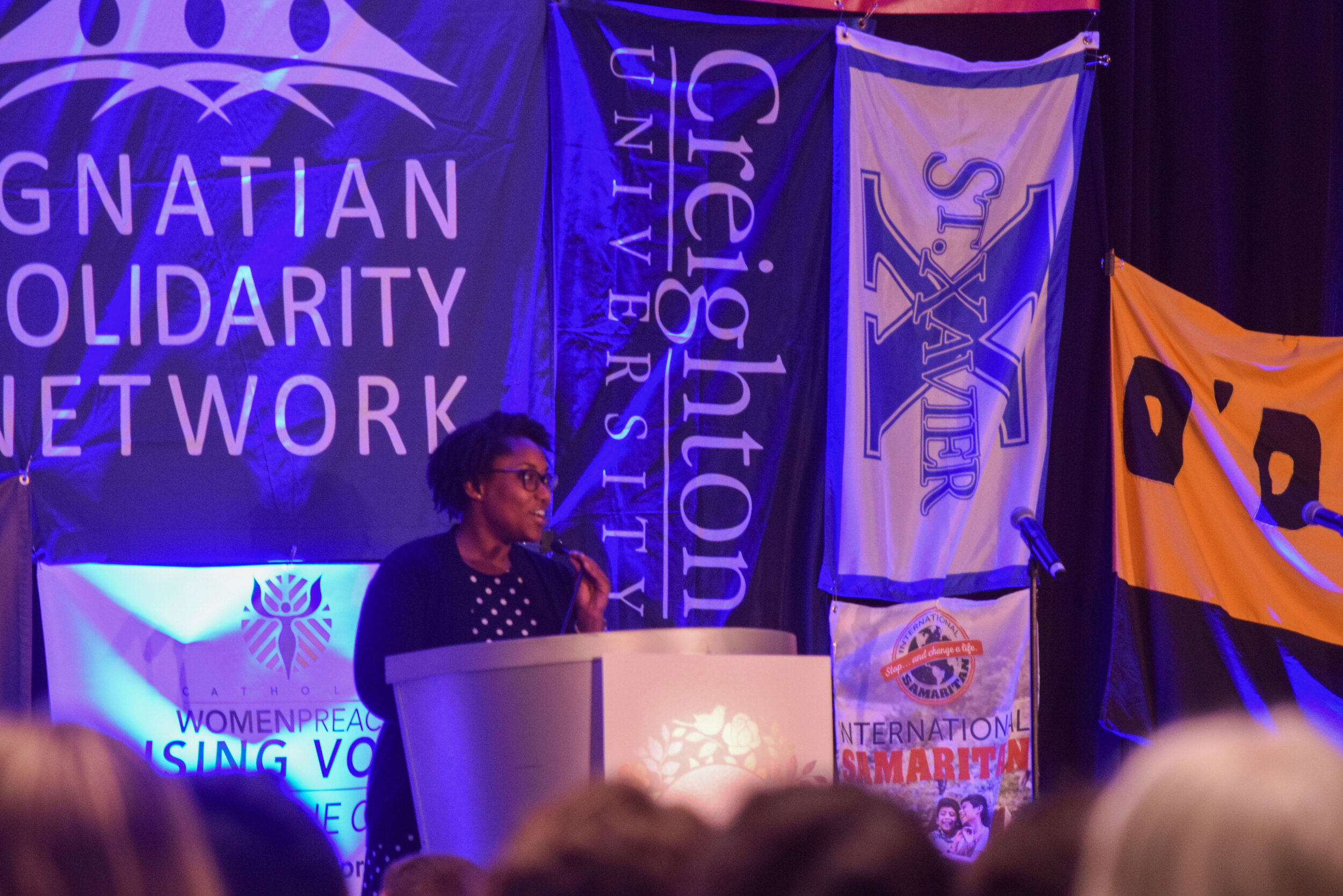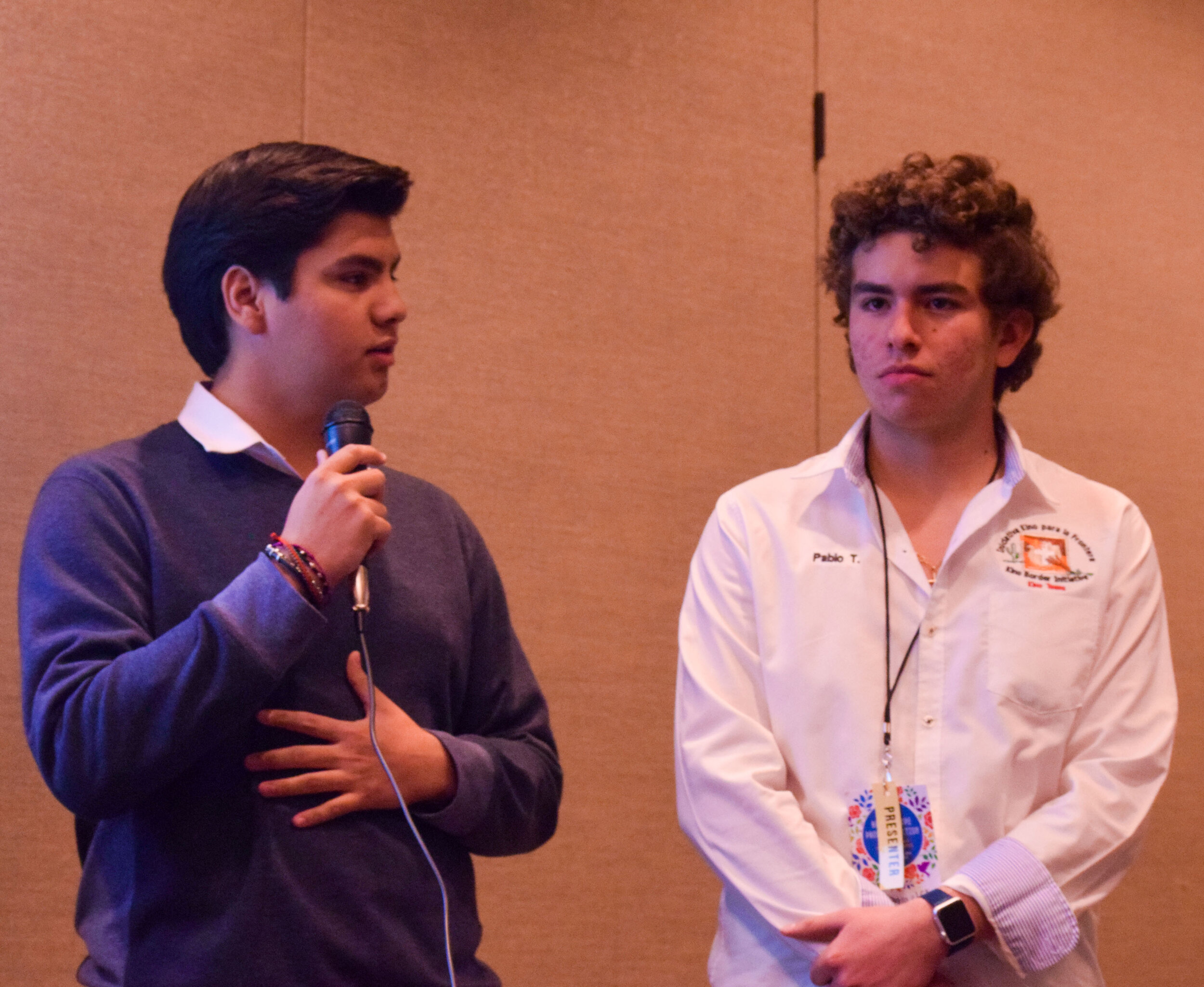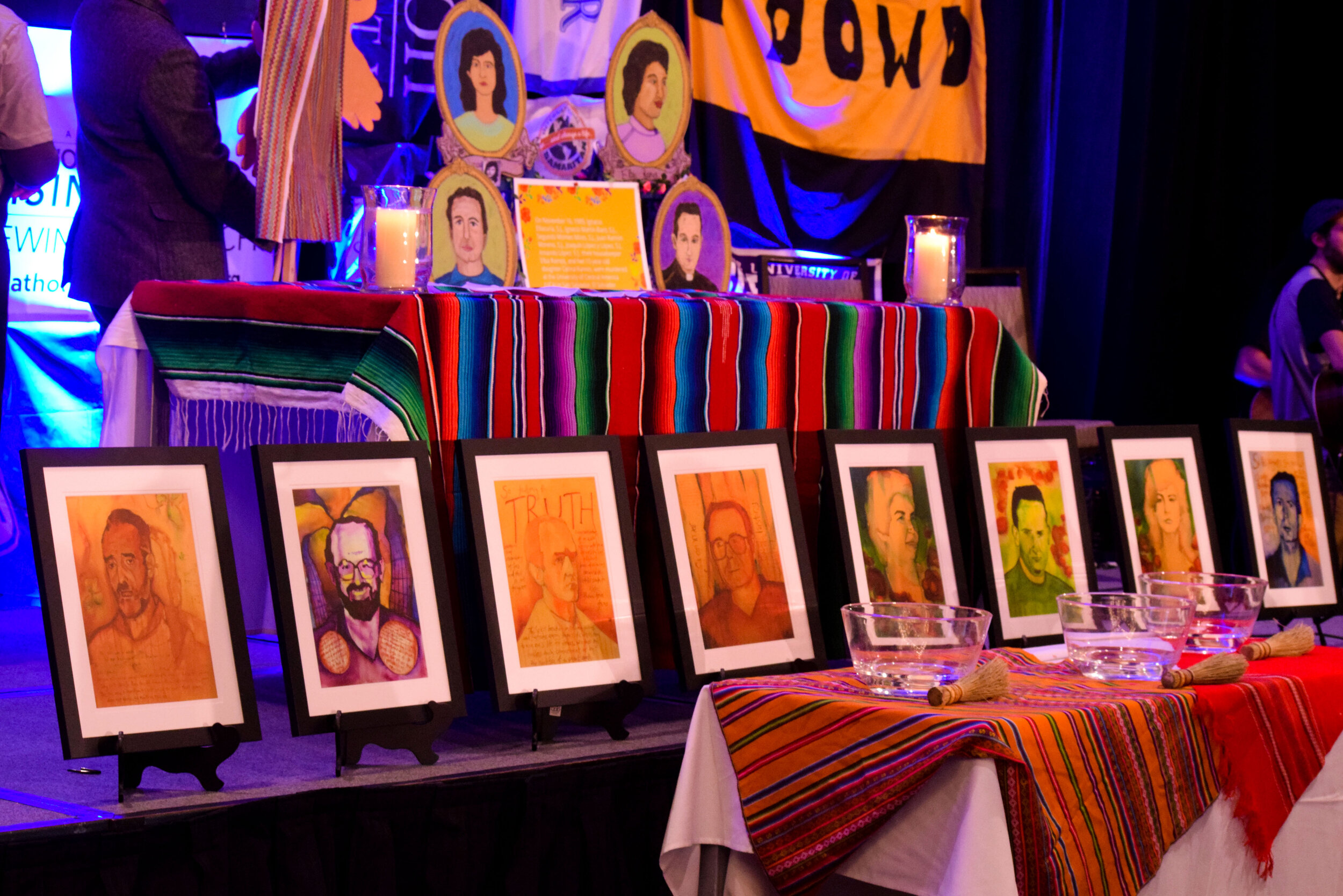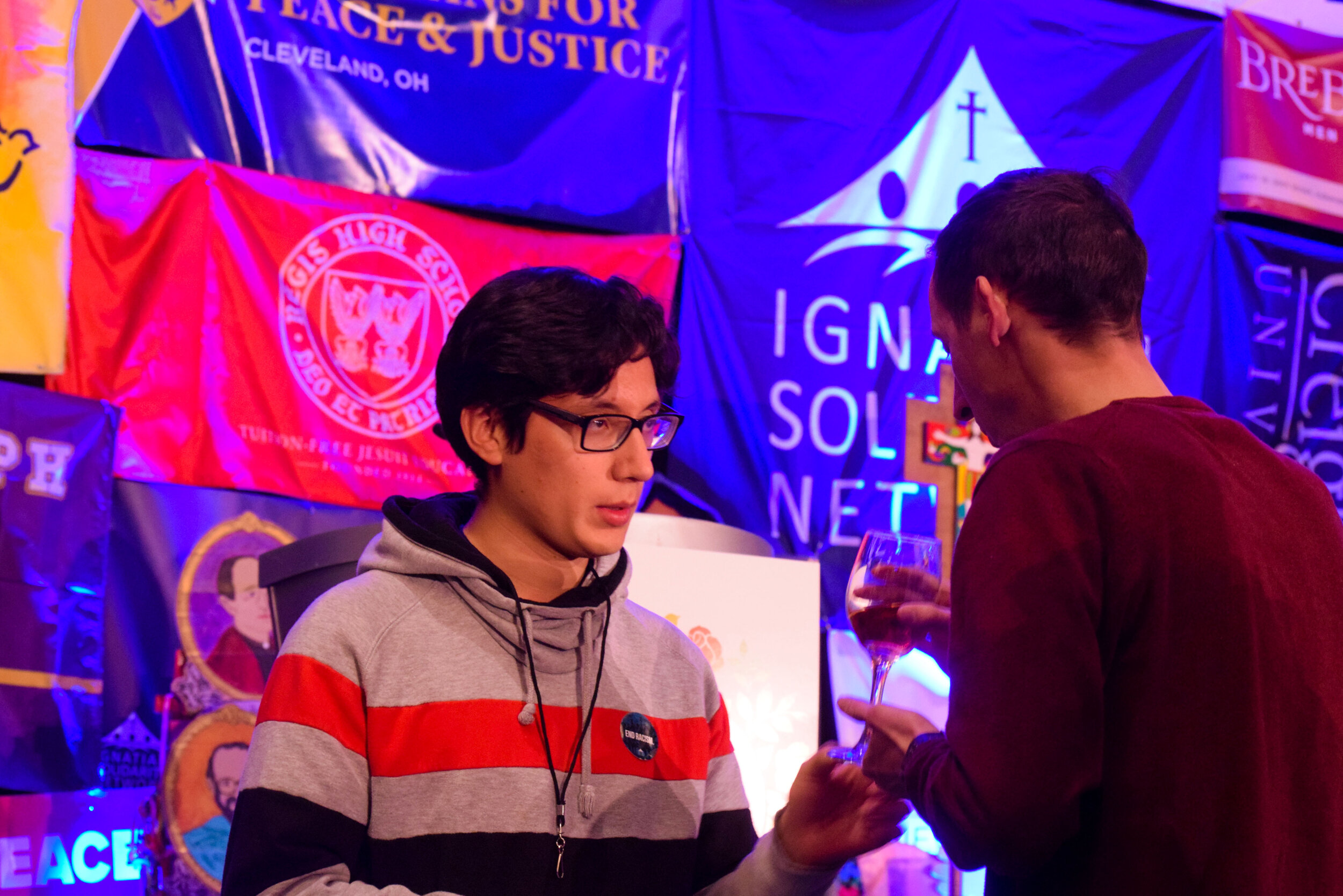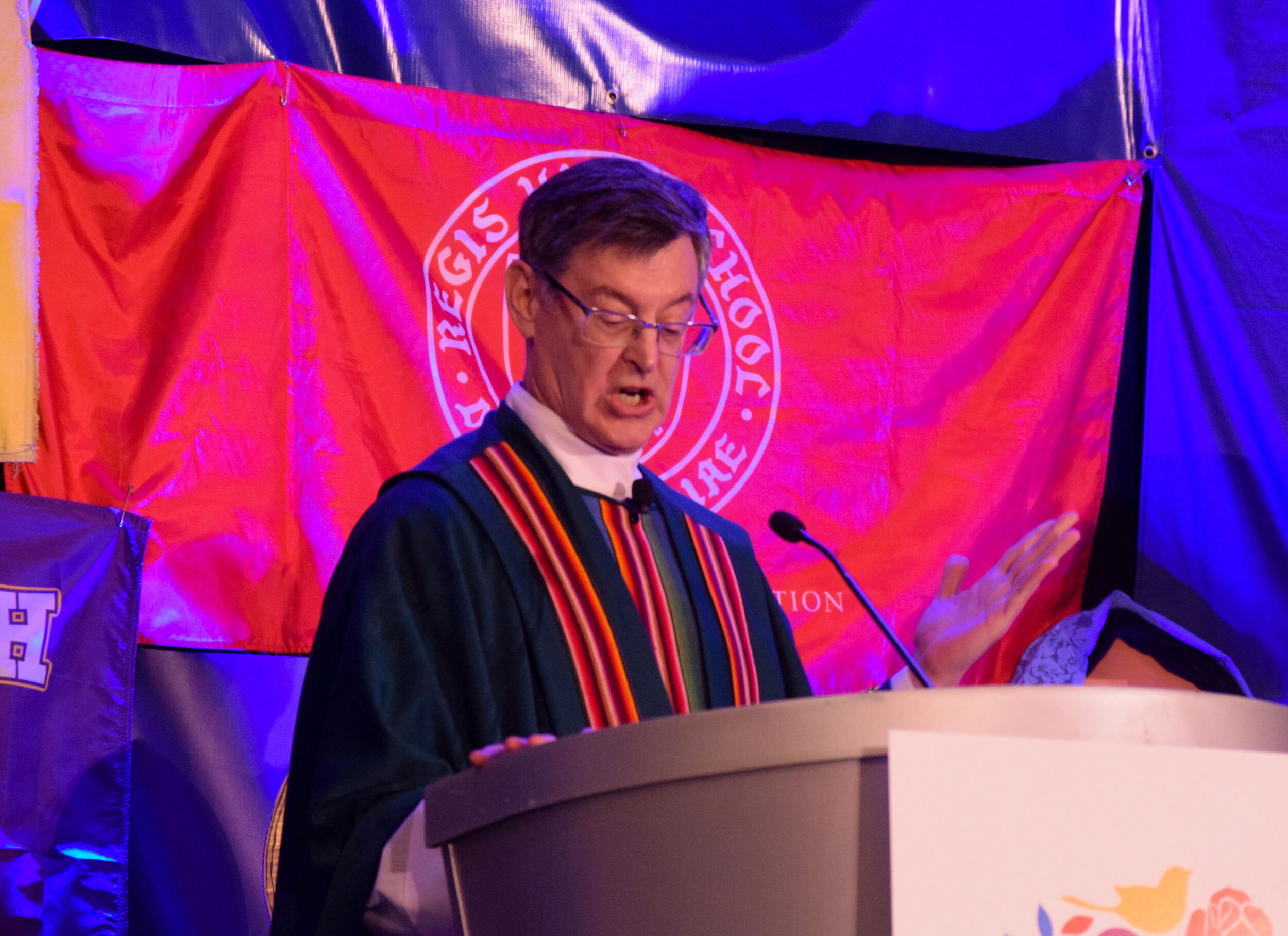Annual social justice conference for students revitalizes faith in action
The Ignatian Family Teach-In for Justice is known as the largest annual Catholic social justice gathering in the nation and is a place for members of the Ignatian family to be with a community that promotes the unity of faith and justice.
The conference, sponsored by the Ignatian Solidarity Network, takes place each November in Washington, D.C. and draws more than 2,000 attendees each year. This year’s conference took place from Nov. 16-18 and focused on the theme of “Radical Hope, Prophetic Action.” Now in its 22nd year, the Teach-In continues to honor the mission of the Jesuits and their companions who were martyred in El Salvador in 1989.
During the Salvadoran Civil War on Nov. 16, 1989, Salvadoran Army soldiers killed six Jesuits and two others at their residence on the campus of José Simeón Cañas Central American University in San Salvador. Jesuit institutions have redefined what it is to be universities, high schools and parishes in light of the martyrs, discerning new ways of addressing issues of social justice locally and abroad.
St. Ignatius of Loyola founded the Jesuits, a Roman Catholic order of priests and brothers, in 1534. Ignatius sent Jesuits throughout Catholic Europe to begin schools and seminaries. In 1556, Ignatius died, but his legacy continued. The Jesuits had established 74 colleges on three continents by the time Ignatius died.
In the United States, Georgetown University in Washington was the first Jesuit university, founded in 1789. There are 28 Jesuit universities and colleges in the U.S. and roughly 189 Jesuit institutions of higher learning globally.
Many of the Jesuit colleges and high schools in the U.S. come to IFTJ each year to discuss immigration, migration, care for creation, LGBTQ issues, racial justice and criminal justice. The conference featured three keynote speakers and numerous breakout sessions throughout the weekend.
One breakout session geared toward high school students called Radical Hope on the Line: Stories from the Border highlighted the efforts of the Kino Border Initiative, which aims to “promote U.S./Mexico border and immigration policies that affirm the dignity of the human person.”
Juan Pablo Torrecillas and David Quezada discussed their experiences as high school students living in the border town of Nogales, Sonora, Mexico and crossing the border every day to attend school in Nogales, Arizona.
Torrecillas and Quezada are Kino Teens, a group that offers high school students opportunities to serve deported migrants, participate in educational activities offered to interested groups and organize advocacy visits to local legislative offices.
They also talked about the harsh border realities that they say news and media organizations often fail to report. The Kino teens said that a migrant’s journey is difficult, and many of them are deported to Nogales, Sonora, Mexico or arrive in the city fleeing from Central America. Migrants often arrive with only the clothes on their backs and a small plastic bag with their belongings.
The Kino Border Initiative assists migrants by providing two meals a day, distributing clothing and personal items and offering orientation for social service assistance. Colleen Lee, director of Campus Ministry at Spring Hill College in Mobile, Alabama, started coming to IFTJ during her undergraduate years at Spring Hill.
Lee explained why she thinks attendance increases each year.
“The Teach-In is an amazing place where people can come and understand a larger vision of what a Jesuit mission really is,” Lee said. “We can pinpoint those justice issues that we’re passionate about and find other people who are also passionate about those issues, and we know that in community, we can be stronger.”
Lee mentioned that one of the challenges of attending IFTJ is figuring out how to apply the information gained from the sessions when students return to their campus communities.
“I think the answer is just to stay in touch and realize that things happen in small steps,” Lee said. “We can in small steps start to make a change in the world.”
One of the keynote speakers was Marcia Chatelain, an associate professor of history and African American studies at Georgetown University. Chatelain highlighted the death penalty in her speech “Radical Hope, Radical Choices.” She pinpointed the “last meal” ritual that typically occurs before a death row inmate’s execution.
Chatelain told a story about a person on death row who chose to eat the body of Christ and receive Holy Communion instead of an actual meal. Chatelain compared this act of refusal to the martyrs within the Catholic Church. According to Chatelain, their spiritual hunger was satisfied because they trusted God and remained faithful throughout their trials.
Chatelain challenged the audience to consider what last acts of justice will be done before their time ends on Earth. She said these final acts of justice are the equivalent to the person on death row’s choosing to receive the Eucharist as the last meal before execution.
“Thinking about every day, we have the capacity to decline empty fuel of the world for the true nourishment of our spiritual and social conviction,” Chatelain said. “Our potential to radically refuse these small bargains is the beginning of how we rebuild a radical hope.”
Chatelain emphasized that radical hope is not limited to desires.
“Radical hope is also about what we choose in order to honor our hope and the hope of others,” Chatelain said.
Chatelain’s full speech from IFTJ 2019 can be viewed here.
Brianna Braden, a sophomore English and theology major at Spring Hill College, spoke about her first Teach-In experience.
“It’s been so cool being surrounded by young people who have some of the same passions that I do paired with theology and God that’s just everything I love wrapped into one conference,” Braden said.
Branden hopes that IFTJ offers her some ideas to bring back to her campus community. She said that she is inspired by her peers that are doing great social justice work in their schools.
“Why reinvent the wheel if I see something that could work in my community, then I can kind of adopt that and go back and make a positive change?”
The full list of speakers from IFTJ 2019 is here.

